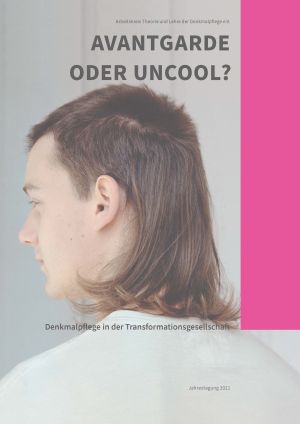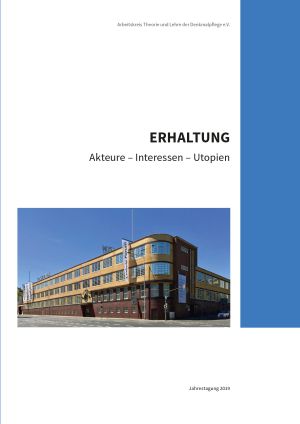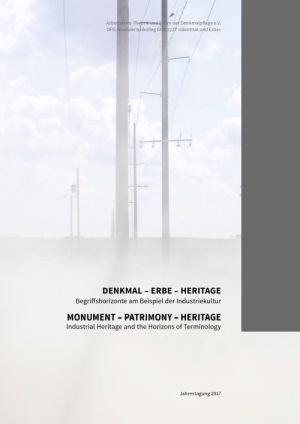Oevermann, Heike
Avantgarde oder uncool? Denkmalpflege in der Transformationsgesellschaft
Under the deliberately provocative title "Avantgarde or uncool?", this volume examines traditions of how heritage preservation is perceived by itself and by others. The background to this critical review is the question of the necessity of repositioning the profession - not only in view of the current challenges of climate change, but also the increasing political and social need for participation. The volume thus brings together not only reflections on the profession's self-image in times of change, but also on professional positions in relation to current issues such as participation, climate change and diversity.
Erhaltung: Akteure – Interessen – Utopien
The will to preserve the architectural cultural heritage can be considered one of the cornerstones of heritage conservation theory and practice. In addition to this seemingly common, overarching goal, however, a closer look reveals a broad spectrum of different objectives and priorities. These are each closely linked to the social contexts and the people involved. For what is understood by preservation and what is to be preserved in a monument is to a large extent related to what is considered to constitute its value - and is thus dependent not only on the constantly changing technical prerequisites, but also on personal and social attributions of value.
Denkmal – Erbe – Heritage: Begriffshorizonte am Beispiel der Industriekultur
This Volume offers two languages (german/english)
If “Sharing Heritage” is to be taken seriously, then it must have consequences for the assessment of value – in Europe, but also beyond: in place of the more exclusionary “World Heritage”, which tends to foreground each country's own, often nationally-defined achievements and merits, we should strive toward the creation of a “Global Heritage,” one capable of building bridges on the basis of universal values, thereby bringing the world’s people closer together as a global community with a common destiny.
The 2017 Annual Meeting of the Working Group on Theory and Education in Heritage Conservation on the topic “Monument – Patrimony – Heritage” at the TU Berlin was at the same time the first Annual Meeting of the Research Training Group 2227 “Identity and Heritage” (GRK 2227), funded by the DFG. A cooperation between the two was particularly opportune, as the Working Group had decided on Berlin as the location of the annual meeting and, in view of the motto “Sharing Heritage” of the European Cultural Heritage Year 2018, to dedicate it to a discussion of monument and heritage terminology, while the Research Training Group, with seats in Berlin and Weimar, had been launched to address such questions and a number of colleagues are active in both bodies.









